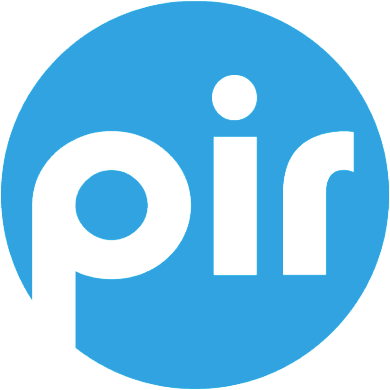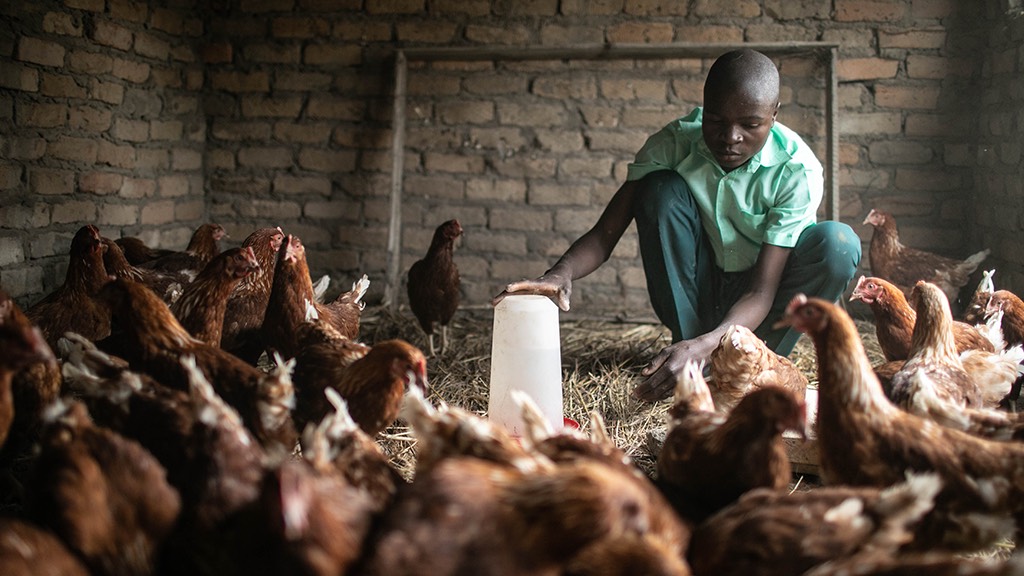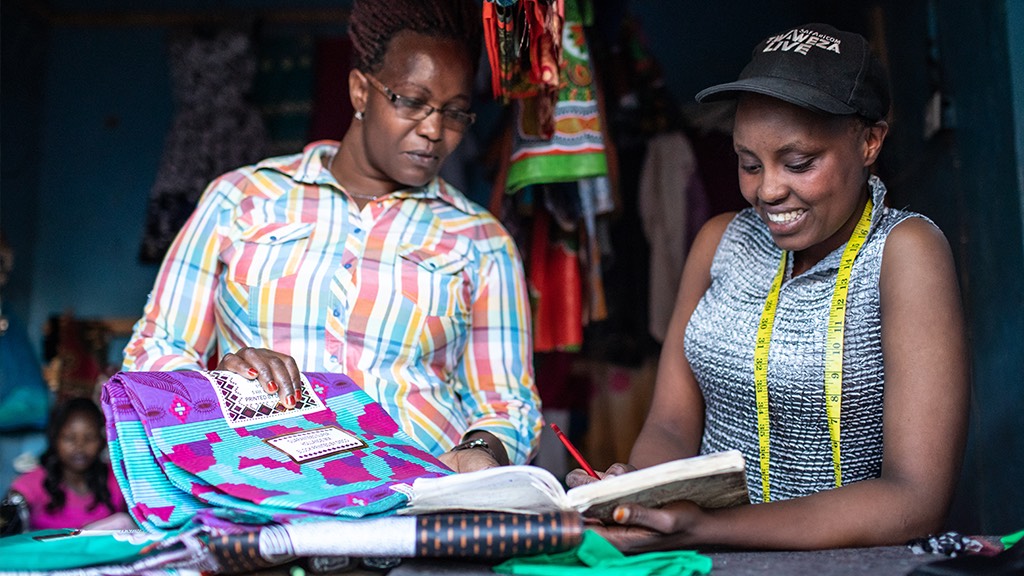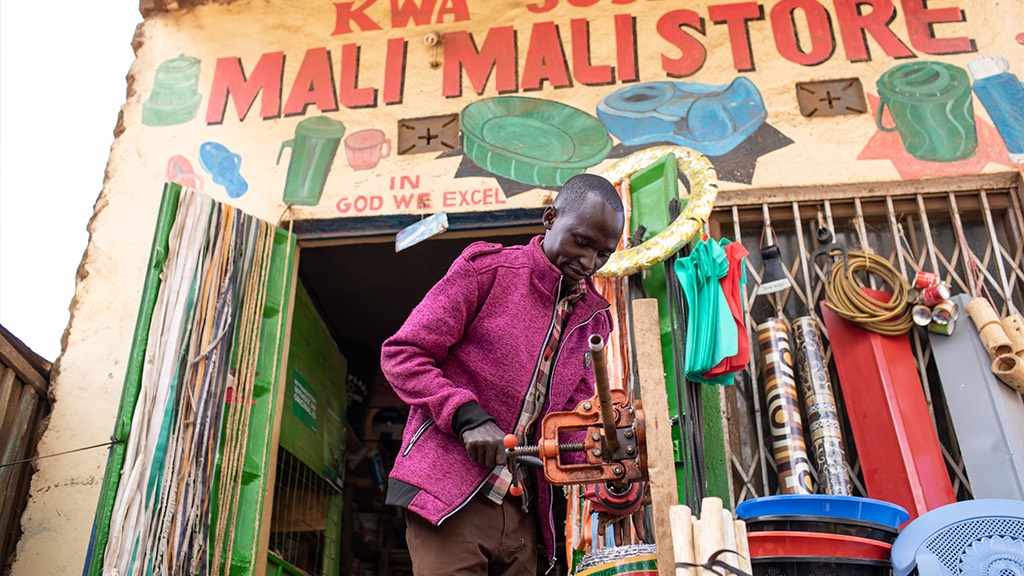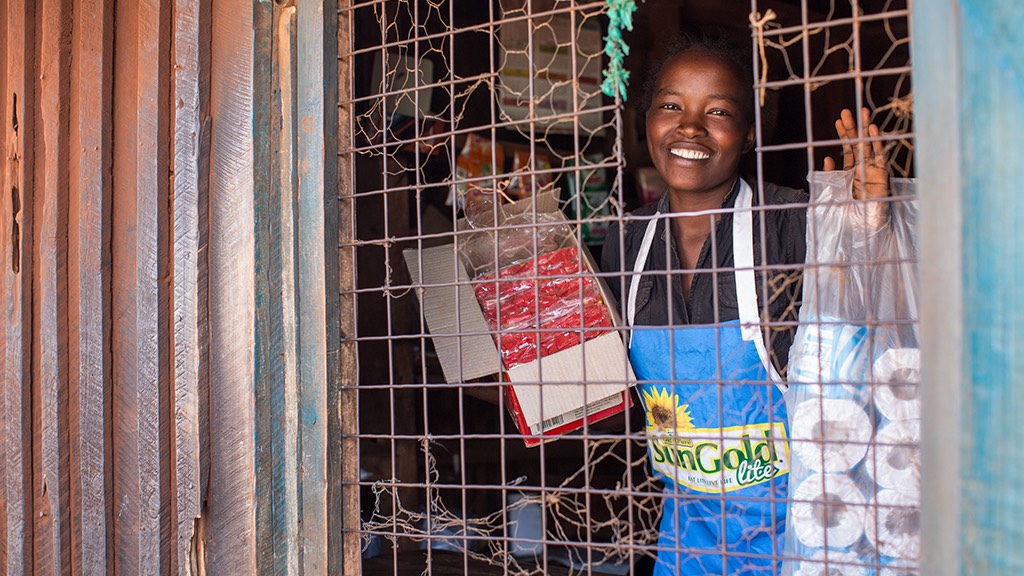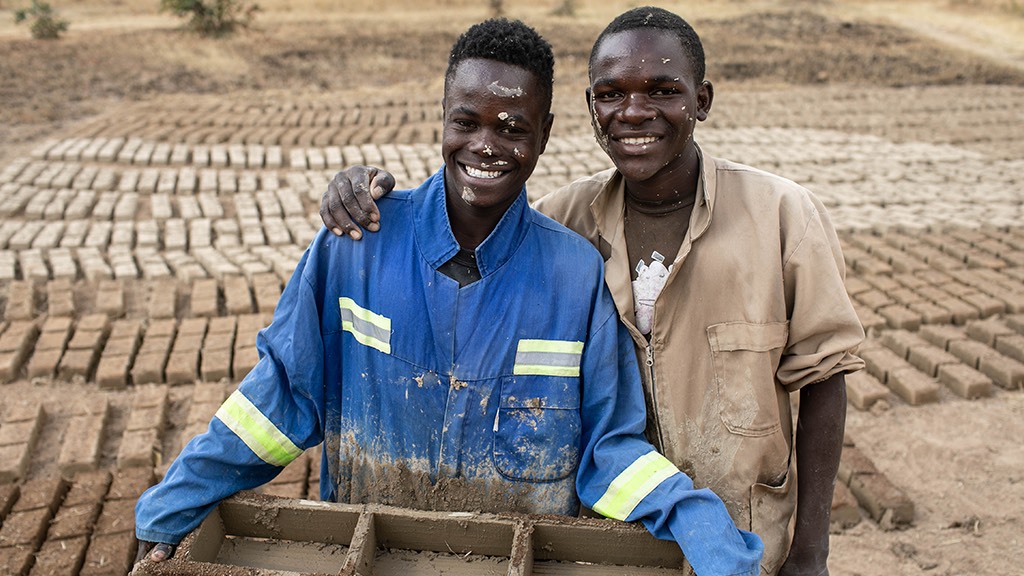Lifting People from Poverty by Inspiring Self-Sufficiency
When her parents passed away, Purity was left alone in Kenya to support her four siblings. They were told by the community to eat from garbage cans. Desperate to support her family, Purity took a job as a housekeeper where, for five years, she was regularly abused.
Then Purity joined Zoe Empowers (Zoe) in 2013. It felt wrong at first to create a dream chart—one step in the Zoe program—as if she wasn’t worthy of doing something that brought her joy. But, that dream chart put her on the path toward fulfilling her aspirations: a family-sustaining career in sewing. Zoe purchased a sewing machine for Purity, pairing her with a local tailor to complete six months of training. Purity’s Zoe groupmates were her first paying customers, hiring Purity to make uniforms for their siblings. Her business grew to include dresses and other items of clothing, where she eventually employed two other women in the community.
Purity’s is an uplifting story, but it is not common enough. There is an ongoing humanitarian crisis of 356 million orphaned and vulnerable children living and dying in extreme poverty around the world, according to UNICEF reports.
Zoe began in 2004 as a relief mission responding to the HIV/AIDS epidemic in Africa, which left hundreds of thousands of children without one or both parents. The team worked hard to establish relationships with local churches, governments, communities, and schools—but there were limitations to how far they could go without the infrastructure to support individual and community development. When Zoe connected with post-genocide Rwandan social workers frustrated by what they saw as an endless cycle of relief and dependency, together they jumped into action.
They developed and began implementing an effective means of providing sustainable humanitarian aid. “Everything that the Rwandan workers were doing was so much better and more sustainable than anything our relief work had accomplished. We made the decision to come fully behind their model,” says Zoe COO John Boswell.
Zoe doesn’t do anything for program participants they couldn’t do for themselves; instead of providing food, Zoe assists participants to grow and buy their own. Rather than providing housing, Zoe assists participants to repair, rent, or build their own housing.
“We embody empowerment from the very beginning,” says Boswell. “Vulnerable youth must take the lead in their own journey out of poverty. [They] have the necessary gifts and abilities—and lack only opportunity and support. Because of this focus on empowerment, Zoe’s cost per participant averages less than $8 per person per month; after three years participants should never need charity again.”
Since 2007, Zoe has helped more than 142,000 vulnerable youth become more self-sufficient by “teaching them to fish,” as the proverb says, rather than giving them one. Today, the organization engages a global network of collaborators and has expanded to other countries, including Kenya, Malawi, Liberia, Tanzania, and India. Zoe also focuses on hiring local employees, including Rwandan social workers who helped found, and continue to help lead, the organization.
“Our website is the front door that invites people in, tells them who we are, and shares what we do and how we do it,” says Boswell. Their .ORG is a critical vehicle for keeping the organization’s donor base informed and supporting fundraising efforts.
Zoe has a relentless commitment to supporting those in extreme poverty worldwide, producing sustainable, generational change. “Graduates of the Zoe program generally continue to support one another after graduation, and thus remain highly resilient because of their personal and group savings, and the ability of Zoe groups to work together to solve challenges. Even if something occurs in the future to destroy their businesses, they possess the skills and support to rebuild,” says Boswell.
To learn more and support their work, please visit www.zoeempowers.org.
